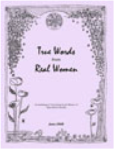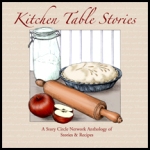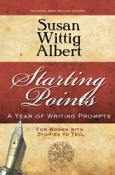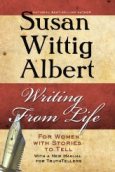“I write to make sense of my life.” John Cheever
I recently taught my last memoir workshop at the Fromm Institute, and I’ll be sorry to leave the cocoon we had created there. For those who aren’t familiar with the Fromm, it’s an institution for older adults and features lectures from outstanding Bay Area emeritus professors on a variety of subjects that include psychology, literature, philosophy, science, theology, history, art, music, politics and creative writing.
This term, I was hired for the writing portion, “Reminiscence: A Creative Writing Workshop.” Years ago, I had taught a weeklong autobiography class for what was then Elderhostel. It was an enriching experience, diving into the past with these older adults and returning with gems from their depths.
The Fromm class has been similar. I’ve structured it so that students who haven’t done much writing can still benefit. There’s a great freedom for them and myself since I’m not grading their assignments. Nor am I focusing on grammar and punctuation errors. Content leads, and their submissions all focus on different aspects of writing an engaging narrative based on prompts that help them focus on important times in their lives.
We’ve looked at character and how to make the people who inhabit our memoirs come alive for readers that don’t know them. But characters don’t live in ether, so my students have also written about places that have nourished them in some way. Neither character nor place would be vivid without incorporating details that appeal to all of our senses. Sensory detail also sets the mood of a writing piece (exciting, happy, cheerful, gloomy, frightening, depressing, suspenseful, calm, peaceful). Since we apprehend the world through our senses, it’s essential that we include the kind of description that evoke them and also capture our imaginations.
I’ve been impressed not only by the quality of the writing I’ve seen from these mainly inexperienced writers but also from their willingness to reveal themselves during small group critique sessions. They’ve been generous in their praise of one another’s work and skilled readers, making helpful suggestions for improving the writing. But most important, they have been transforming themselves through recovering these experiences and recasting them. As James Longenbach states in Modern Poetry After Modernism, “…any account of the past, whether private or historical, is an act of personal making.” What a privilege It’s been to be present at all of these mini-births!
Lily Iona MacKenzie, author of Fling! and All This
Lily’s blog
Fling! audiobook
Amazon Fling!
Lily’s Facebook page
@lilyionamac
Curva Peligrosa, a novel, coming in 2017
Freefall: A Divine Comedy, a novel, coming in 2018






It must be very rewarding to help people open up their memories, to sift and sort valuable moments in their lives, and then create a narrative for others to read, or not.